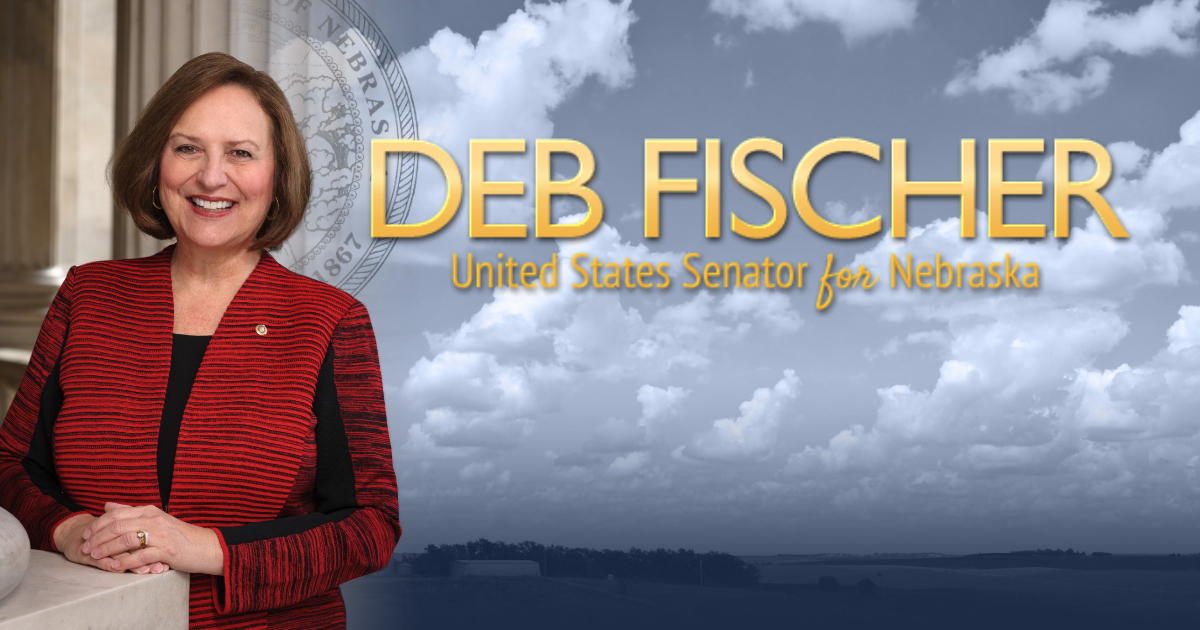Source: United States Senator for Nebraska Deb Fischer
WASHINGTON, DC. – U.S. Senator Deb Fischer (R-Neb.), a member of the Senate Agriculture Committee, today participated in the committee’s hearing on her bipartisan Cattle Price Discovery and Transparency Act.
During her opening remarks and line of questioning, Sen. Fischer highlighted how herlegislation would ensure every segment of the beef supply chain can succeed. She also noted that while there is near universal concern over the lack of price discovery and market transparency, voluntary efforts to address these concerns have largely failed from a lack of packer participation. Furthermore, instead of being in the driver’s seat, as was claimed by some witnesses, family ranchers often face a “take it or leave it” market. Finally, Sen. Fischer heard from a producer witness how increases in negotiated sales have not resulted in the economic losses some opponents have predicted.
Two panels of witnesses appeared before the committee. Panel one consisted of USDA Senior Advisor for Fair and Competitive Markets Andy Green and USDA Administrator for Agricultural Marketing Service Bruce Summers. Panel Two consisted of William Ruffin of Ruffin Farms, Kansas Livestock Association and Tiffany Cattle Company President-elect Shawn Tiffany, Ziesch Ranch Owner/Operator Shelly Ziesch, and Colorado State Agricultural & Resource Economics Professor Dr. Stephen Koontz.
Click the image above to watch video of Sen. Fischer’s remarks/questions (panel one)
Click the image above to watch video of Sen. Fischer’s remarks/questions (panel two)
Key excerpts from Sen. Fischer’s remarks/ line of questioning are copied below (edited for clarity):
On the importance of the cattle industry to the state of Nebraska:
Sen Fischer: As all of you know, Nebraska is the beef state. I represent every segment of the supply chain from cow-calf producers, to backgrounders, to large and small feed yards and also, we have 3 of the 4 big packers in the state of Nebraska. The livestock industry contributes $13.8 billion to Nebraska’s economy annually. It is the economic engine of my state.
I first introduced legislation nearly two years ago after hearing concerns from cattle producers in Nebraska, but also from producers all across this nation. Sen. Grassley has introduced legislation for 20 years. This is not a new issue. This is not an issue that came about due to Covid. It has existed for years.
The goal of this legislation has not changed – we want to ensure every segment of the beef supply chain can succeed by ensuring robust price discovery and market transparency.
On the “take it or leave it” market producers face every day:
Sen Fischer: Madam Chairwoman, I have a letter of support from the Nebraska Cattlemen about the need for robust price discovery and market transparency.
I wish we could have had a Nebraska producer here but as is noted in their letter, “none of our producer members we encouraged to testify were willing to put themselves out front for fear of possible retribution by other market participants – an unfortunate reality of today’s cattle industry.”
This concern demonstrates an imbalance in market power.
Chairwoman Stabenow – I ask for unanimous consent to submit this letter from Nebraska Cattlemen into the record.
I would also like to highlight a series of articles from the Omaha World Herald. The latest article discusses that producers’ share of the beef dollar has continued to decline while the packers’ share went up 31% last year.
Some today will claim that, “The seller is in the driver’s seat.” We all know how out of touch from reality that is.
If cattle producers were in the driver’s seat, they would set a price and the packer would take it. Instead, producers take the price that is offered by the buyer. Producers face a take it or leave it market – that is the reality.
On how increases in negotiated cash sales have not resulted in economic losses:
Sen. Fischer: Mr. Ruffin – as a producer who sells cattle into Texas, you can speak to real world impacts that we see that negotiated trade will bring.
When the Texas/ Oklahoma/ New Mexico region increased their negotiated trade, did you experience significant economic losses as some economists have claimed?
Mr. Ruffin: Senator, I did not. I guess the problem is, from where I stand as a small cow/calf producer and backgrounder in Mississippi, price hasn’t really changed much up or down. Even though I know that packers are reaping premium price for animals. […]
Sen. Fischer: Thank you, sir. It’s good to hear from producers that increased negotiated trade did not impose a cost upward of 65 dollars a head as some economic models have suggested.
This large of a cost would have been noticeable in the real world and impacted your bottom line.
# # #
